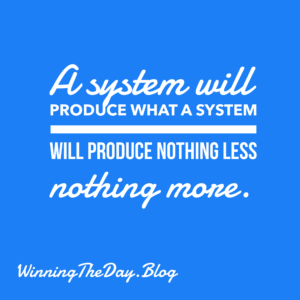The whispers (and sometimes shouts) about Artificial Intelligence in real estate are everywhere. You might be excited by the possibilities, or perhaps a little (or a lot!) overwhelmed. Questions like, “What is this thing anyway?” and “Will it take my job?” are completely valid.
The truth is, AI isn’t about replacing the human touch that is so crucial in our industry. Instead, it’s about equipping you with powerful new tools. And while mastering complex algorithms isn’t on your to-do list, developing practical AI skills is becoming essential for staying competitive and serving your clients even better.
So, if you’re feeling a bit lost in the AI conversation, or even a little anxious about what it all means, you’re not alone. Let’s break down the essential, actionable skills you can start developing today – no tech wizardry required:
1. Demystifying the Basics: Understanding What AI Can (and Can’t) Do
- Practical First Step: Spend 30 minutes exploring a simple explanation of AI in everyday language.
- Resource Recommendation: Check out the common-sense explainer video “What is ChatGPT and How Does it Work?” by Tech Insider on YouTube. It breaks down large language models (a foundational AI technology) in an accessible way.
2. Getting Your Hands “Digitally Dirty”: Exploring User-Friendly AI Tools
- Practical First Step: Identify one area of your business where you feel a bit bogged down (e.g., brainstorming listing headlines, researching neighborhood amenities). Then, look for a user-friendly AI tool designed for that task (many offer free trials).
- Resource Recommendation: For brainstorming listing descriptions and marketing copy, try a free trial of Jasper AI or Rytr. These tools are designed for content creation and have intuitive interfaces. For quick neighborhood research summaries, explore the free features of ChatGPT or Google Gemini with simple prompts like “Summarize key amenities in [your target neighborhood].”
3. Learning to “Speak AI’s Language”: The Power of Clear Prompts
- Practical First Step: Once you’re in an AI tool, practice giving it clear, specific instructions. Think of it as delegating to an assistant – the more precise you are, the better the output. Start with simple requests and iterate.
- Resource Recommendation: Watch the short YouTube video “ChatGPT Prompting for Beginners” by Udacity. It provides practical tips on how to structure your prompts for better results.
4. Developing Your “AI Intuition”: Evaluating Results with a Real Estate Lens
- Practical First Step: When an AI tool gives you an output (e.g., a property description), don’t accept it blindly. Ask yourself: Does this accurately reflect the property? Does it resonate with my target audience? Your real estate expertise is crucial for filtering and refining AI-generated content.
- Resource Recommendation: Read articles or blog posts that discuss the importance of human oversight in AI content generation. Search for terms like “AI bias in content” or “evaluating AI accuracy” to develop a critical perspective.
5. Understanding the Ethical Boundaries:
- Practical First Step: Familiarize yourself with basic data privacy principles and be mindful of how AI tools handle client information. Look for reputable tools with clear privacy policies.
- Resource Recommendation: Review the National Association of REALTORS® (NAR) Code of Ethics, paying particular attention to articles related to data privacy and fair housing. Also, look for articles or webinars specifically addressing ethical considerations of AI in real estate.
6. Leveraging AI for Efficiency: Freeing Up Your Time for What Matters Most
- Practical First Step: Explore how AI can automate time-consuming tasks, such as initial research or drafting marketing materials. By becoming more efficient, you’ll have more valuable time to dedicate to building relationships and understanding your clients’ unique needs.
- Resource Recommendation: Look for case studies or articles showcasing how other real estate professionals are using AI to automate tasks. Search for terms like “AI for real estate automation” or “real estate virtual assistants AI-powered” to see practical examples.
7. Embracing Continuous, Small-Step Learning:
- Practical First Step: Subscribe to a real estate tech newsletter or follow a relevant social media account. Dedicate just 10-15 minutes a week to stay informed about new AI developments and practical applications.
- Resource Recommendation: Sign up for newsletters from real estate technology platforms or follow influencers and thought leaders in the proptech space on LinkedIn or Twitter. Search for hashtags like #realestatetech, #proptech, and #airealestate.
The AI frontier doesn’t have to feel like a daunting wilderness. By focusing on these practical first steps and gradually building your understanding with these resources, you can confidently navigate this new landscape, enhance your business, and ultimately have more time to focus on your clients’ needs.
What’s one small step and resource from above are you willing to explore this week in the world of AI in real estate?




